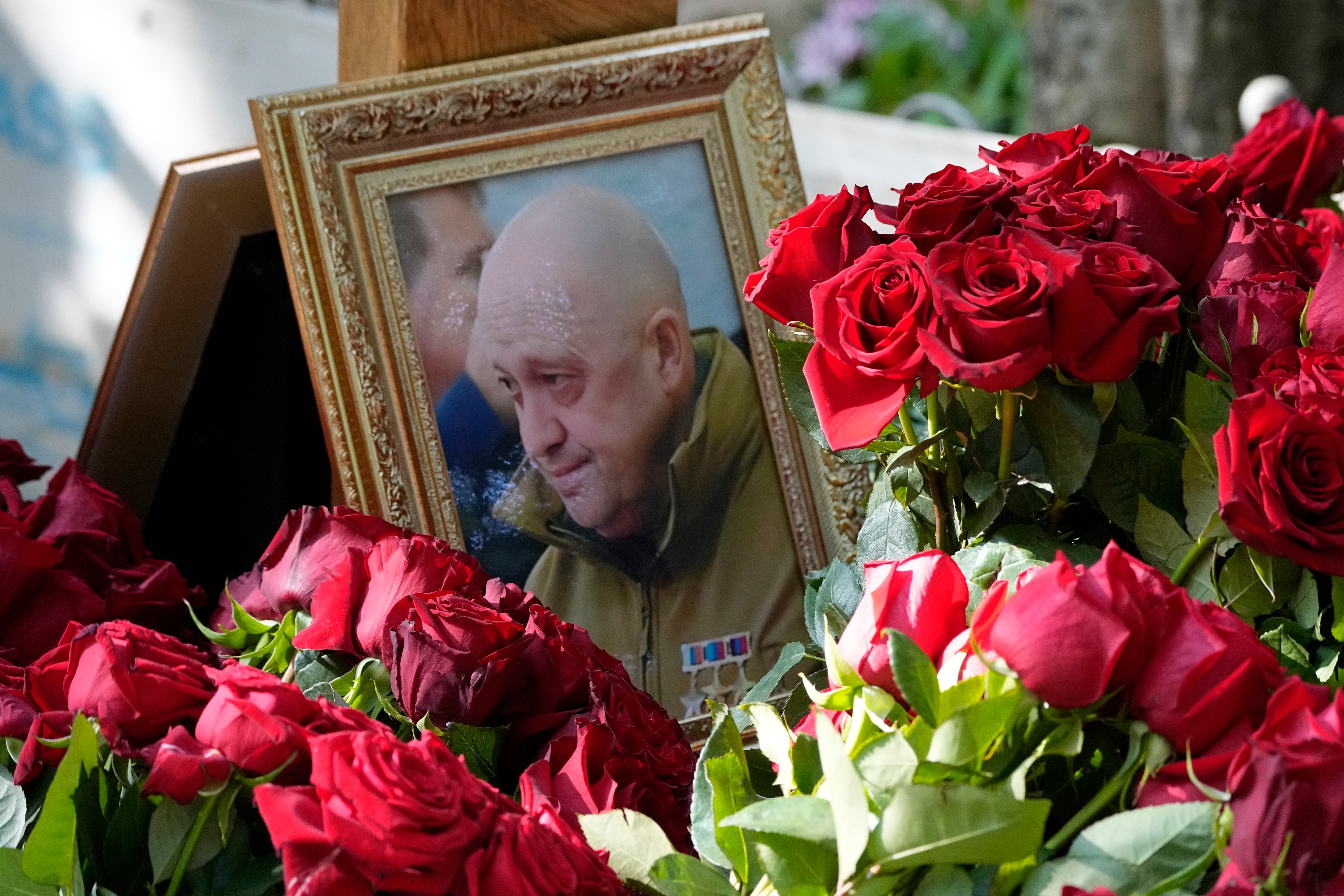With its leader dead, can the Wagner group rise and ride again?
Has the mercenary army crashed and burned like its leader, Yevgeny Prigozhin, or will it emerge from the wreckage to fight another day? The answer is critical for its arch-nemesis Vladimir Putin, writes Mary Dejevsky


A long time ago the RAC warned UK motorists against driving to the accompaniment of Wagner’s “Ride of the Valkyries”, as their rescuers had found that this piece of music – sometimes still playing amid the wreckage – was a common denominator when they attended road accidents. For some reason, this is the association that has always sprung to my mind when Russia’s Wagner Group is in the news, as it has been rather prominently in recent weeks.
It has something to do with the double forte, the accelerating tempo, and the sheer sense of risk. And the association was surely deliberate. The Wagner group, officially described as a private military company, was named by its founder, Dmitry Utkin, after the call-sign he had chosen in honour of his favourite composer when he served in Russia’s special forces during the Chechen wars. The name seems doubly pertinent now that Utkin, and Yevgeny Prigozhin, the leader and public face of Wagner, appear to have perished, along with other Wagner leaders, when their plane crashed and burned on the short flight between Moscow and St Petersburg.
This time last week, the question was still open as to whether they had really died. That appears now to have been answered beyond reasonable doubt. Prigozhin was buried this week, alongside his father, in a private and closely guarded ceremony at a cemetery on the edge of St Petersburg. The second question – whether they were assassinated, and if so by whom – remains moot, and may never have a definitive answer. But a third question now hangs in the air and will one day have an answer: is the Wagner group destined to crash and burn like its leaders, or will it rise to fight another day? And if it does, to whose benefit?
One notable feature of the past week has been the distance that has been kept by President Putin. The two men went back a long way, to their years in immediate post-Soviet St Petersburg – Putin working in the local city administration, Prigozhin as a caterer with a criminal past and an entrepreneurial streak.
It is not at all clear, however, whether they were friends, as many have assumed, or more in the way of patron and client – Putin being the patron – with interests that coincided at times. There was certainly little warmth in Putin’s formal expression of condolences, where he referred to Prigozhin as a gifted entrepreneur, who had made a “significant contribution” to the war in Ukraine, but also as “a person with a complicated background who made serious mistakes in his life”.
This was seen partly as a reference to a violent crime Prigozhin had committed in his early life, for which he had served time in prison. But at least as big a mistake, in Putin’s view, must surely have been the brief mutiny Prigozhin led in June. He had insisted that his rebellion was directed not against Putin, but against the Russian military and defence establishment and its failures, as he saw it, in the war in Ukraine. But it made Putin look weak and exposed cracks in the Russian war effort, if not in the actual political leadership, that may or may not have been overcome.
The Wagner Group initially came to notice when Russia seized Crimea from Ukraine in 2014 and rebels in the east of Ukraine aligned themselves against Kyiv and sought support from Moscow. As such, they were useful to Moscow in the same way as they were useful to Moscow elsewhere in the world.
There are parallels to be drawn with the way the United States used commercial security groups, such as Blackwater, in Afghanistan and Iraq – to augment US regular forces, to break inconvenient rules and to engage in activities that were at arm’s length from the state, and so could be denied. It is even possible that Putin and/or his top brass had observed from the US how such forces could be used, as had Utkin and Prigozhin, and simply copied what they saw as a successful model.
Private security companies were prohibited from operating inside Russia, for reasons that became even more obvious with Prigozhin’s mutiny. But semi-state and commercial organisations, such as the energy conglomerate Gazprom, were recently permitted to set up their own security groups. That could be one way forward for a smaller Wagner – becoming a conventional security provider.
It also appears that Wagner will continue with the security contracts it has with foreign governments, including in Mali and the Central African Republic, though there must be questions about how far this will be feasible in the longer term. Prigozhin conducted a whistle-stop tour of his African interests and forces in Africa shortly before his death, apparently to reassure his paymasters about continuity, given his uncomfortable post-mutiny position in Russia.
Following recent military coups in Niger and now Gabon, the security situation in that part of the world is looking less predictable than it did even six months ago. Although there is no evidence at all of any direct Russian involvement in inciting the coups, the Russian flag has become a symbol of opposition to French and colonial rule, which could mean new opportunities for Russia, either directly or through Wagner, or a post-Wagner group.
It has to be asked, however, how much capacity Russia has left for African adventures, given the war in Ukraine, and also how convincing a force Wagner, or a successor, might be, without Prigozhin’s personal networks and energy. True, the Kremlin said recently that it was the prime source of Wagner’s funds, supposedly clarifying just how close to the Russian State Wagner really was. But it is not at all clear how far this was correct, whether it might have been said just to clip Prigozhin’s wings, and whether it made sense for the Kremlin to claim Wagner, when a large part of Wagner’s reason for existing was to claim a semblance of distance from the Kremlin.
Closer to home, what seems certain is that the deal Putin struck with Prigozhin to end the mutiny, which was brokered by Belarus president Alexander Lukashenka, has little to no weight anymore (if it ever did). Arrangements for Prigozhin to take at least a part of his forces into effective exile in Belarus seem to be petering out, if they ever operated at all.
For want of a plausible alternative, most of the Wagner forces seem to be in the process of returning to their homes or signing contracts (albeit inferior contracts) with the regular Russian army. This would effectively solve the problem highlighted by Prigozhin’s mutiny – the presence of a Russian military force in Russia and Russian-occupied Ukraine, that was not for any practical purposes under Russian command. To that extent, it amounts to a victory for Putin and a closing, or at least a papering over, of the cracks the mutiny had exposed in the Russian state.
Whether that portends longer-term stability is another matter. Wagner usefully filled certain gaps – in the performance of Russian regular troops close to home and in furthering Russia’s reach further afield, with a degree of deniability if required. Arguably, Wagner under Prigozhin became too big and too effective to serve the state, mutating into a threat instead.
Whether a shrunken Wagner clearly subordinate to the Kremlin or a plethora of smaller private security groups taking its place can be as useful to Putin, or to Russia, as Wagner once was must be in doubt. The ride of these latter-day Valkyries, as led by Yevgeny Prigozhin and named by Dmitry Utkin after his favourite composer, has reached its end.






Join our commenting forum
Join thought-provoking conversations, follow other Independent readers and see their replies
Comments